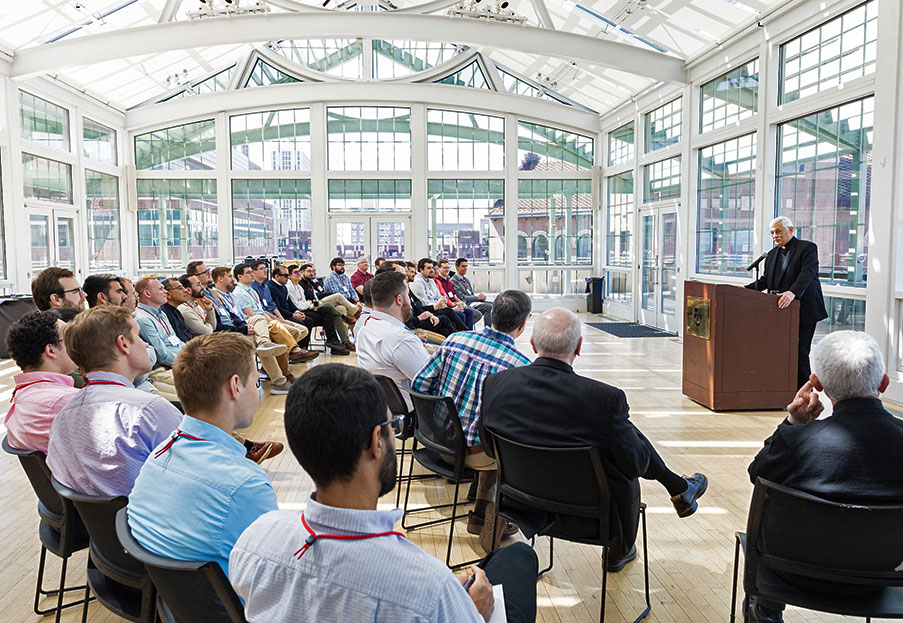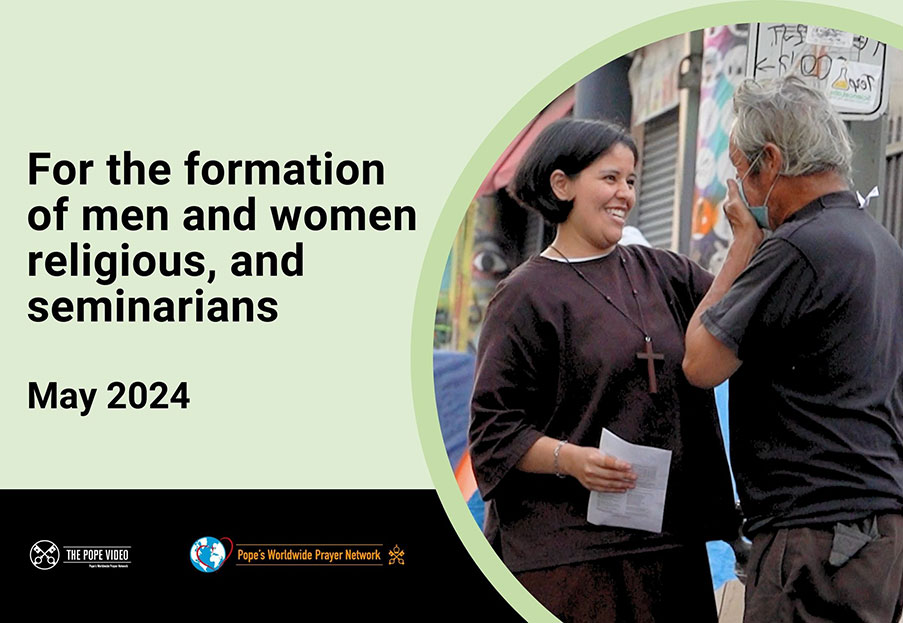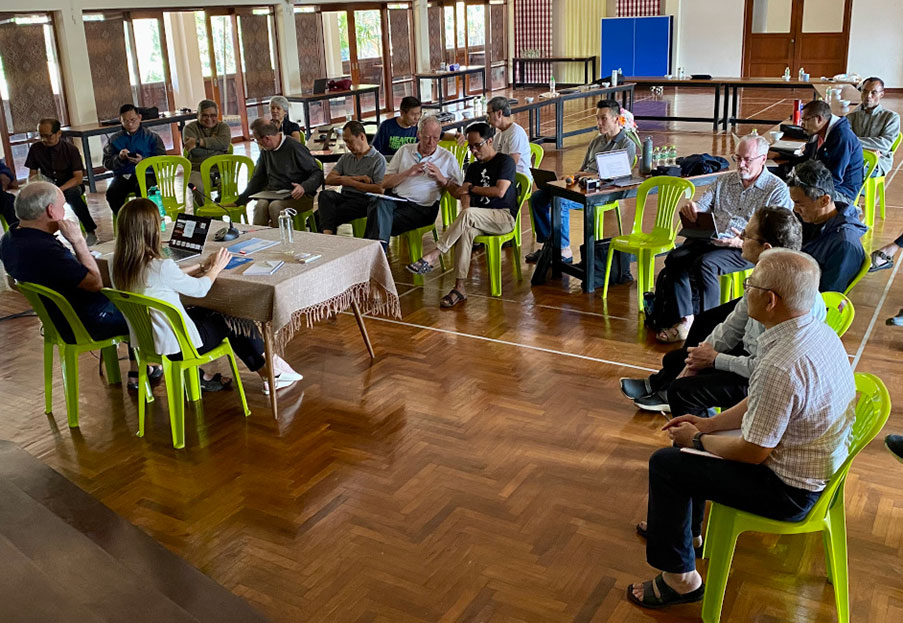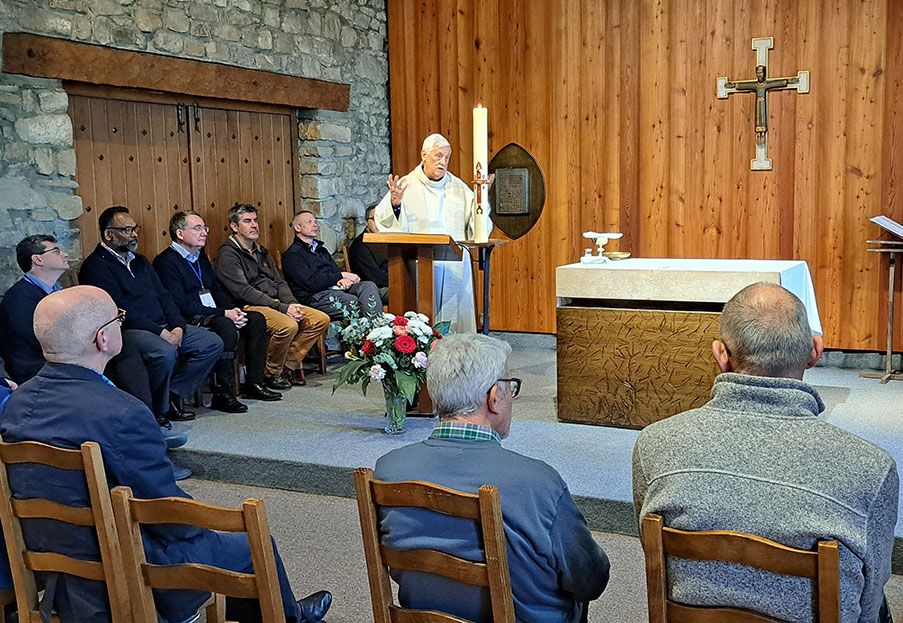East Timor Jesuits: Young, Dynamic, Creative
What place does East Timor occupy within the Jesuit landscape? First of all, let’s remember that this country won its independence twice: in 1975 from Portugal, then in 2002 from Indonesia, which had annexed it in 1976, without UN recognition. This independence came at a high price for the people, as it was marked by large-scale massacres and ransacking by the Indonesian army. These recent historical facts explain why East Timor, even if it counts only about forty Jesuits, is an independent Region. It would not be appropriate for it to be dependent on the Jesuit Province of Indonesia.
In connection with the aforementioned history, Father General, having just arrived in the country, went to visit the Museum of Resistance and then - a rare occurrence during his visits - met the country’s Prime Minister, Mr Xanana Gusmåo, himself a Jesuit alumnus.
Here are a few more facts about the Society of Jesus over there: out of just over 40 Jesuits, around ten are applied to East Timor and come mainly from the Philippines, but also from Japan, Malaysia and Vietnam. A dozen scholastics are studying abroad. The novitiate welcomes up to a dozen novices, a good number considering the total population of 1.4 million. It should be pointed out that this is the only country in the Asia-Pacific region, along with the Philippines, where the majority of the population is Catholic.
The Region (ETR) has a
brand new Superior, Erik John Gerilla - better known by his initials “EJ” - who
took office on 3 January 2024. He is originally from the Philippines, but has
worked for several years in East Timor. We asked him a few questions.
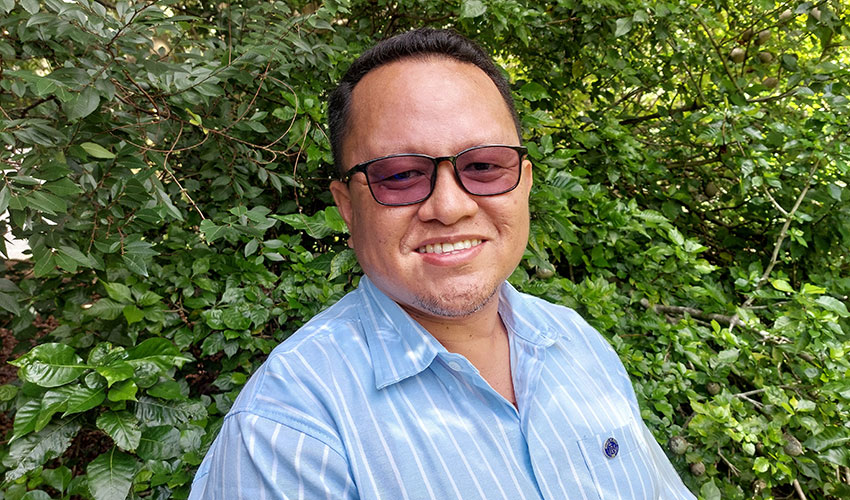
Fr EJ Gerilla SJ.
Fr EJ, how would you say that the Region of Timor-Leste is “unique”, within the Jesuit environment?
What is unique about this Jesuit Region of Timor-Leste is its international character as it is composed of both local and foreign Jesuits who have been together for several years now. Another unique characteristic of the Region is its young age and emerging character as an apostolic body. The Jesuits arrived here in 1899 but only in recent decades, after a long period of military and civil wars, has it been growing slowly and could eventually define its core mission in the local Church.
I should add that, over the past few months, the Region has engaged in a process of discernment in common with the Australian Province. The proposal from the Curia in Rome has been to integrate ETR as a Dependent Region to the Australian Province. But the result of joint discernment and discussion proposed an alternative, a “formalized companionship” between ETR and ASL. After receiving our proposal, Fr. General is asking both ETR and ASL to define the terms of reference of such partnership, set targets and establish a timeline in order to make it fruitful for the mission of the Society of Jesus.
In this context, what do you expect from Father General’s visit?
The
visit of Fr Sosa in Australia and East Timor is a sign of his serious intent to
make this “formal companionship” work. I believe he wants to strengthen the
internal capacities of the East Timor Region and at the same time the missionary
character of the Australian Province. Fr General’s visit to both places is also
an expression of interest and an opportunity to better know the context of both
Australia and East Timor. We believe that his visit will inspire our young Timorese
Jesuits to give themselves more dynamically to the mission. I am confident that
Fr General’s presence and words will come across as messages of hope and
encouragement to continue our struggle to give life to the mission amongst the
local people of Timor.
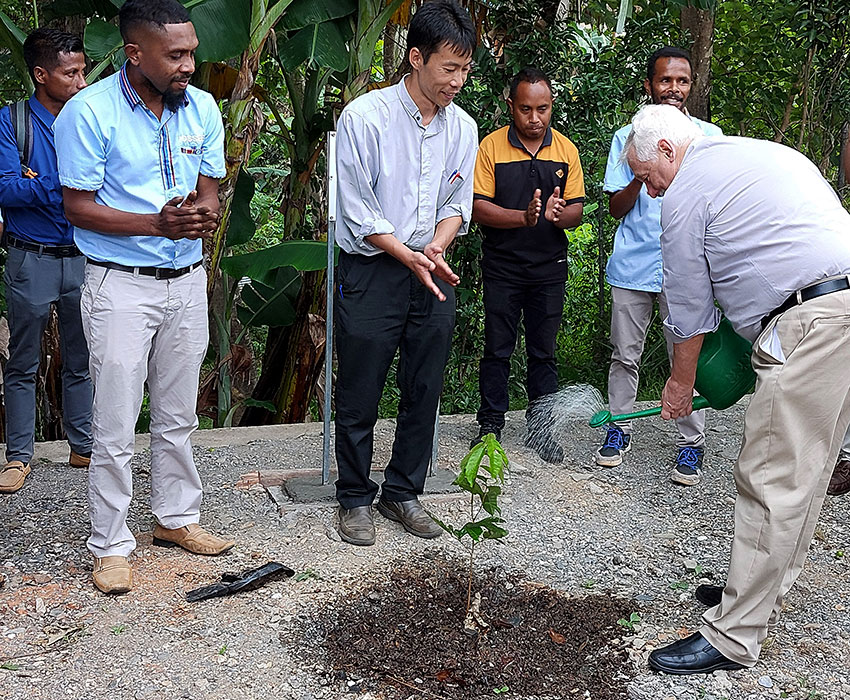
As Regional Superior, can you already identify some sources of consolation and how do you envision the future of ETR?
I have been in office for just a couple of weeks... So far, I have been in an “orientation period”, getting to know the Region more deeply. I have not defined any particular vision for the Region, for its members and partners in mission. My concern at present is to get to know each Jesuit and to find the best ways to serve them as Superior, giving each one the care he needs.
I draw consolation from the assurance that God calls me to this kind of service to the Society of Jesus; I know God is ultimately in-charge. My task is to help the discernment I talked about for our future, identifying how God is present. I also draw consolation from the support of my fellow Jesuits and lay collaborators. My Jesuit companions and some lay partners show their availability and support and that is enough for me to be motivated day after day.
It
is my profound desire that we grow in the knowledge and practice of the discernment
in common within the Region. It will be only through discerning together that
we will be united for the good of the mission. We have the example of the First
Companions, Ignatius and the men who initiated the Society of Jesus: it is only
through discernment in common that we can transcend our differences and nourish
our shared passion for mission, making Christ the center of everything that we
strive for.

